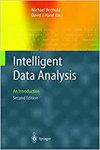Design of an energy efficient dynamic virtual machine consolidation model for smart cities in urban areas
IF 0.8
4区 计算机科学
Q4 COMPUTER SCIENCE, ARTIFICIAL INTELLIGENCE
引用次数: 0
Abstract
The growing smart cities in urban areas are becoming more intelligent day by day. Massive storage and high computational resources are required to provide smart services in urban areas. It can be provided through intelligence cloud computing. The establishment of large-scale cloud data centres is rapidly increasing to provide utility-based services in urban areas. Enormous energy consumption of data centres has a destructive effect on the environment. Due to the enormous energy consumption of data centres, a massive amount of greenhouse gases (GHG) are emitted into the environment. Virtual Machine (VM) consolidation can enable energy efficiency to reduce energy consumption of cloud data centres. The reduce energy consumption can increases the Service Level Agreement (SLA) violation. Therefore, in this research, an energy-efficient dynamic VM consolidation model has been proposed to reduce the energy consumption of cloud data centres and curb SLA violations. Novel algorithms have been proposed to accomplished the VM consolidation. A new status of any host called an almost overload host has been introduced, and determined by a novel algorithm based on the Naive Bayes Classifier Machine Learning (ML) model. A new algorithm based on the exponential binary search is proposed to perform the VM selection. Finally, a new Modified Power-Aware Best Fit Decreasing (MPABFD) VM allocation policy is proposed to allocate all VMs. The proposed model has been compared with certain well-known baseline algorithms. The comparison exhibits that the proposed model improves the energy consumption by 25% and SLA violation by 87%.面向城市智慧城市的节能动态虚拟机整合模型设计
城市地区不断发展的智慧城市日益智能化。城市智能服务需要海量存储和高计算资源。它可以通过智能云计算提供。大规模云数据中心的建立正在迅速增加,以便在城市地区提供基于公用事业的服务。数据中心的巨大能源消耗对环境造成了破坏性影响。由于数据中心的巨大能源消耗,大量的温室气体(GHG)排放到环境中。虚拟机(VM)整合可以提高能源效率,降低云数据中心的能源消耗。能源消耗的减少会增加违反SLA (Service Level Agreement)的情况。因此,本研究提出了一种节能的动态VM整合模型,以降低云数据中心的能源消耗并抑制SLA违规。提出了新的算法来完成虚拟机整合。引入了一种新的主机状态,称为几乎过载的主机,并由一种基于朴素贝叶斯分类器机器学习(ML)模型的新算法确定。提出了一种基于指数二叉搜索的虚拟机选择算法。最后,提出了一种改进的MPABFD (Power-Aware Best Fit reduction)虚拟机分配策略来分配所有虚拟机。将该模型与一些已知的基线算法进行了比较。比较表明,所提出的模型将能耗提高了25%,SLA违规率降低了87%。
本文章由计算机程序翻译,如有差异,请以英文原文为准。
求助全文
约1分钟内获得全文
求助全文
来源期刊

Intelligent Data Analysis
工程技术-计算机:人工智能
CiteScore
2.20
自引率
5.90%
发文量
85
审稿时长
3.3 months
期刊介绍:
Intelligent Data Analysis provides a forum for the examination of issues related to the research and applications of Artificial Intelligence techniques in data analysis across a variety of disciplines. These techniques include (but are not limited to): all areas of data visualization, data pre-processing (fusion, editing, transformation, filtering, sampling), data engineering, database mining techniques, tools and applications, use of domain knowledge in data analysis, big data applications, evolutionary algorithms, machine learning, neural nets, fuzzy logic, statistical pattern recognition, knowledge filtering, and post-processing. In particular, papers are preferred that discuss development of new AI related data analysis architectures, methodologies, and techniques and their applications to various domains.
 求助内容:
求助内容: 应助结果提醒方式:
应助结果提醒方式:


